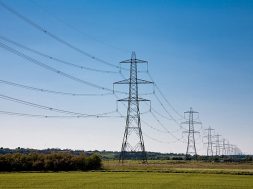
EV makers are key to sparking the mobility revolution – EQ Mag
EV makers are key to sparking the mobility revolution through their efforts to recalibrate the industry.
As new electric vehicles take to the road, uncertainty over whether EVs will become part of the mainstream car market has faded under the weight of a more pressing need — recalibrating auto manufacturing to support EV production and a viable mobility sector.
Not since the auto industry evolved from hand-cranked automobiles to the major global market it is today has manufacturing been so pivotal to the sector’s future and potential promise.
Realizing such promise, however, will require automakers and dealers to become ever more innovative, agile, and resilient in the face of a changing auto landscape that EVs will help shape.
At least 30 percent of new vehicles are expected to be electric by 2030, and there are plans in California to shift more toward EVs in 2035. Moreover, car companies continue to provide home-EV charging stations where possible to ease range anxiety, while U.S. government rebates seek to aid EV affordability.
Although these developments may only reflect the start of the mobility journey, they also represent a defining moment in which manufacturing will be key to realizing the mobility vision.
Many automakers are already hard at work expanding their manufacturing footprint to accommodate evolving EV technology and production on a much larger scale.
And with such manufacturing expansion, undoubtedly there will be additional challenges, including re-imagining product development; developing and managing battery supply; building new skills; balancing internal combustion engine and EV demand; and addressing EV profitability.
Realizing the vision
There are several key areas automakers and dealers can focus on to address such issues. These include:
- Engineering – Car manufacturers should define a clear technology evolution strategy for EV platforms – taking advantage of engineering services to redesign products, acquire new technologies, and ensure long-term battery performance. In addition, vehicle information communications should be revised to manage evolving software, batteries, e-engines, and new services integration more efficiently.
- Manufacturing – Taking advantage of digitized manufacturing solutions and simulation technologies will help automakers design more flexible assembly lines. These solutions also will enhance the ability of the workforce to manage both ICE and electric vehicle production.
- Marketing – Manufacturers and dealers creating awareness and desire for EVs will be critical. This should include providing clear information around products and services, while developing new sales options. Redesigning the customer journey to enhance EV-specific touchpoints also will be important.
- Sales and Mobility Services – Automakers and their dealers should redesign the retail network, integrating direct and indirect on-and off-line channels using mobility platforms to facilitate EV usability, such as ridesharing. The use of customer data and collaborating with ecosystem partners to offer creative and profitable connected vehicle services will be important. In terms of aftersales, there will be a need to re-orient capabilities to manage and service new EV and dedicated components, such as batteries, while offering new e-services. Moreover, collaboration with external partners to handle recycling and oversee the overall impact of e-vehicles on the environment will be essential. Recycling is especially important, as sustainability needs that largely helped shape the EVs of today are growing.
- Vehicle Profitability – Given that the industry is still transitioning to a robust mobility market, EV sales volumes still have room to grow. Therefore, also focusing on both ownership and useability services, such as subscription models to boost customer interest and revenue, will be important.
Energizing Mobility
Today’s electric vehicles are in the best position to jump-start a powerful mobility sector in the same way that innovations like mass-production and the uncomplicated use of a car ignition key helped shift the auto industry into high gear.
And most important, forward-thinking EV manufacturing will be critical to establishing this next phase of the automotive industry — the mobility revolution.


















